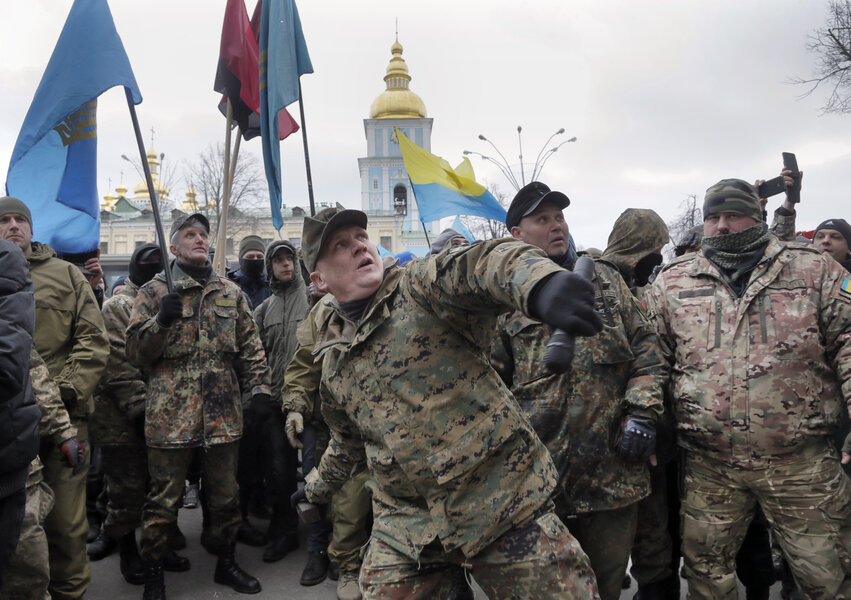Kiev demonstrators attack Russian banks amid protests anniversary
Loading...
| KIEV, Ukraine
Nationalist demonstrators in Ukraine on Saturday attacked two offices of Russian banks in the capital amid observances of the second anniversary of the protests that brought down the Russia-friendly president.
Demonstrators threw rocks through windows at the offices of Alfa Bank and Sberbank and damaged furniture and equipment inside. Protesters also vandalized the offices of the holding company of Ukraine's richest man, Rinat Akhmetov. Police did not intervene.
Tens of thousands of people in the Ukrainian capital came to various observances of the "Day of the Heavenly Hundred." The term refers to those who died during the months of protests in Kiev that culminated with President Viktor Yanukovych fleeing.
Saturday was the second anniversary of the bloodiest day of the protests, when more than 50 people died from sniper fire.
After the ousting of Yanukovych, Russia annexed the Crimean Peninsula from Ukraine and Russian-speaking separatists in the Donetsk and Luhansk regions launched protests that escalated into a war that has killed more than 9,000 people.
A cease-fire was called a year ago, but reports of violations are frequent. Russia, which Ukraine and Western countries claim has sent troops and equipment to back the insurgents, blames the Kiev authorities for keeping tensions high by failing to push through measures that would increase autonomy for the eastern regions and allow local elections.
But nationalists vehemently reject any concessions to the east and are angered by authorities' failure to address Ukraine's endemic corruption. Akhmetov, whose wealth springs from mining and steel in the east, is a target of their anger.
"We need to have a third Maidan," said Nikolai Kokhanovsky, a leader of the Organization of Ukrainian Nationalists, using the common term of the protests of 2014 and those of the 2004 Orange Revolution. New protests would "sweep away this corrupt government and pro-Russian oligarchs who have betrayed our revolution of dignity."
"Russia and the oligarchs are guilty for life in Ukraine becoming worse and worse," said 21-year-old protester Ruslan Tymchuk, who was dressed in camouflage and wielding a bat.
In recent weeks, political tensions have risen and President Petro Poroshenko this week urged Prime Minister Arseniy Yatsenyuk, a key figure of the 2014 protests, to resign along with his government. But Yatsenyuk survived a parliamentary no-confidence vote.
At the observances for those who died in the protests, Poroshenko vowed that efforts would continue to bring to justice the snipers who killed demonstrators and asserted that despite the eastern conflict and severe economic difficulties "nonetheless, the country is changing and moving forward."





